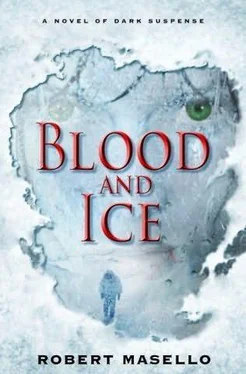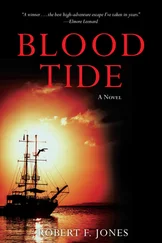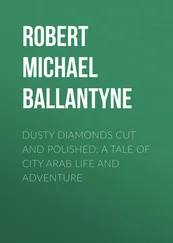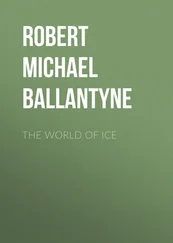Robert Masello - Blood and Ice
Здесь есть возможность читать онлайн «Robert Masello - Blood and Ice» весь текст электронной книги совершенно бесплатно (целиком полную версию без сокращений). В некоторых случаях можно слушать аудио, скачать через торрент в формате fb2 и присутствует краткое содержание. Жанр: Триллер, на английском языке. Описание произведения, (предисловие) а так же отзывы посетителей доступны на портале библиотеки ЛибКат.
- Название:Blood and Ice
- Автор:
- Жанр:
- Год:неизвестен
- ISBN:нет данных
- Рейтинг книги:3 / 5. Голосов: 1
-
Избранное:Добавить в избранное
- Отзывы:
-
Ваша оценка:
- 60
- 1
- 2
- 3
- 4
- 5
Blood and Ice: краткое содержание, описание и аннотация
Предлагаем к чтению аннотацию, описание, краткое содержание или предисловие (зависит от того, что написал сам автор книги «Blood and Ice»). Если вы не нашли необходимую информацию о книге — напишите в комментариях, мы постараемся отыскать её.
Blood and Ice — читать онлайн бесплатно полную книгу (весь текст) целиком
Ниже представлен текст книги, разбитый по страницам. Система сохранения места последней прочитанной страницы, позволяет с удобством читать онлайн бесплатно книгу «Blood and Ice», без необходимости каждый раз заново искать на чём Вы остановились. Поставьте закладку, и сможете в любой момент перейти на страницу, на которой закончили чтение.
Интервал:
Закладка:
“Any word of Frenchie?” Rutherford had asked, but Sinclair shook his head. No letters had reached the front for weeks, nor any word from the field hospitals. Sinclair had seen his friend's leg after the horse had fallen over on it, and he knew that even if he did see him alive again, Frenchie would not be the man he once was.
Would any of them be?
It was a beautiful day, clear and bright, and Ajax pawed the ground, eager to move. Sinclair stroked his long, chestnut neck, and tugged gently on the black mane. “One day, my boy one day…” he said, reconciling himself to many more hours of listening to the sounds of a skirmish somewhere off in the distance, or the faraway boom of Russian cannons. For so much of the campaign he had felt like someone stranded just outside a theater, hearing the tumult and voices inside, but unable to get in the door. He wondered what Eleanor was doing, and whether she was safe, and if his own letters had ever made it back to her in London.
Rutherford grunted and pointed his chin to Sinclair's right. An aide-de-camp had just left the commander's side, and was riding pell-mell down the almost vertical hillside. The track was barely there, and many times the horse nearly lost its footing, but the rider was always able at the last second to regain control and continue his mad descent.
“Only one man that I know of can ride like that,” Sergeant Hatch observed from his own mount.
“And who might that be?” Rutherford asked.
“Captain Nolan, of course,” Sinclair put in. The same Captain Nolan whose equitation techniques were sweeping the Continent.
The rider came on, rocks and gravel and dust kicking up behind his horse's hooves, and once he had reached the plain below, he spurred his horse on ever faster. Lord Lucan, in his white-plumed hat, trotted toward the approaching figure and reined in his horse not more than ten yards in front of Sinclair, between the tight formations of the Light and the Heavy Brigades which he commanded.
Nolan galloped up, sweat streaming from his horse's flanks, and pulled a communique from his sabretache, slapping it into Lord Lucan's hand. Though Sinclair was well aware of Nolan's low regard for Lord Lucan (shared by most of the cavalry), still he was surprised at the peremptory manner in which he had delivered the message. Lucan had a famously bad temper, and any such misstep could lead to arrest for insubordination.
Lucan, glowering, read the orders, then looked up at Nolan, whose horse was still pacing anxiously about, and challenged him in some way. Sinclair could not make out all the words, but he heard something to the effect of “Attack what? Attack what guns, sir?”
Sinclair traded a look with Rutherford. Was Lord Lucan- “Lord Look-On” to his idled troops-once again going to keep his men from entering the fray?
Nolan urgently repeated something, his dark curls shaking about his head, and gestured at the paper in Lord Lucan's hand. And then, with his arm thrown out toward the Russian batteries at the far end of the North Valley, and in a voice that even Sinclair could clearly hear, Nolan shouted, “There, my lord, is your enemy. There are your guns!”
Sinclair expected to see Lord Lucan go into a rage at this further impertinence and order Captain Nolan to be arrested on the spot, but instead he simply shrugged, turned his horse away, and trotted off to consult with his archenemy, Lord Cardigan. Whatever had been written in that communique, it was sufficiently important that he did not wish to ignore it or to take some unilateral action.
After several minutes of intense deliberation, Lord Cardigan saluted, not once but twice, and galloped back toward Sinclair and his fellow Lancers. Quickly, he ordered the brigade to form up in two lines, with the first line composed of the 17th Lancers, the 13th Light Dragoons, and the 11th Hussars; the second line was made up of the 4th Light Dragoons and most of the 8th Hussars. The Heavy Brigade, meanwhile, was being drawn up to their rear. The Horse Artillery, which might have been expected to follow under normal circumstances, was not ordered up-perhaps, Sinclair concluded, because the valley before them was partly plowed and consequently hard to traverse.
If he'd had to guess, Sinclair would have said that the North Valley, into which the brigade was entering, was about a mile and a quarter long, and not even a mile wide. It was a flat plain, offering no sort of cover, and on all three sides it was under the control of the Russian forces. On the Fedioukine Hills to the north, Sinclair could make out at least a dozen gun emplacements, along with several battalions of infantry. To the south, the Causeway Heights were even more fearsome, with as many as thirty guns and a field battery that had captured the redoubts earlier in the day. But it was at the end of the valley that the greatest danger of all lay. If the Light Brigade was to attack that point, it would not only have to pass through a gauntlet of fire the entire way, it would then have to ride straight up into the muzzles of a dozen cannons, backed by several lines of densely packed Russian cavalry.
For the first time in his life, Sinclair had a distinct premonition of death. It came not as a shiver, or even as an urge to flee, but as a cold, stark fact. Up until then, even as others had fallen by the wayside with cholera or fever, or been picked off by snipers in the hills, he had never truly considered his own vulnerability. He had felt impervious. But no one, staring down the bore of the North Valley, could continue in such an illusion.
Sinclair was riding in the first line with Rutherford on his left, and a young chap named Owens on his right. Sergeant Hatch had been conscripted into the second line.
“Five quid,” Sinclair said to Rutherford, “that I reach the gun battery first.”
“You're on,” Rutherford said. “But have you got five quid?”
Sinclair laughed, and Owens managed a weak smile at overhearing the exchange. He had a receding chin and a thin face, and his skin had gone as white as whey. His hand trembled on the upright lance.
A trumpet sounded, and Sinclair fell silent, as did all of those around him. Lord Cardigan had ridden several lengths in front of the entire company, and all alone he drew his sword and raised it. In a calm voice that nonetheless carried to the men behind him, he said, “The Brigade will advance. Walk, march, trot.”
The sound of the trumpet had died away, and it was only as the cavalry advanced, lances held high, that Sinclair noted the strange, almost unnatural hush that seemed to have fallen over the entire valley. No rifles were fired from the heights, no cannons boomed, no breeze rustled the short grass. All he could hear were the creaking of the leather saddles and the jingling of spurs. It was as if the whole world was holding its breath, waiting to see how this spectacle would unfold.
Sinclair held his reins loosely in his hands, knowing that the time would soon come when he would have to tighten his grip and urge Ajax on into a maelstrom of fire. The horse lifted its head, snorting at the fresh air, happy to trot at last on level, hard-packed ground. Sinclair tried to keep his gaze fixed firmly ahead, on the trim figure of Lord Cardigan, sitting erect in his saddle, his gold-laced pelisse not dangling from his shoulder, as was the custom, but worn as a coat. Cardigan never once turned around to observe his troops, for to do so, as any cavalryman knew, was to signal uncertainty, and Lord Cardigan was nothing but certain of himself. Whatever Sinclair and the other men thought of him in general, much as they might mock him for his luxurious ways and petty insistence on protocol, on that day he was an inspiring figure.
And then Sinclair saw, at the far end of the valley, a puff of smoke, as delicate and round as a dandelion head, then another. The boom of the cannon fire arrived only a second or two later, and a fountain of dirt and grass erupted into the air. The shots had fallen short, but Sinclair knew that the Russian gunners were simply finding their range. The front line had advanced no more than fifty or sixty yards, when to Sinclair's astonishment Captain Nolan broke from the ranks and raced, in a gross breach of all military etiquette, directly across Lord Cardigan's path, waving his sword; he had wheeled in his saddle and was shouting something at Cardigan that was impossible for anyone to hear over the rising thunder of the guns. For a moment, Sinclair thought that Nolan had lost his head entirely, and was trying to take over the charge. But before Cardigan could even react to this shocking display, a Russian cannonball exploded in the dirt, and a shell fragment ripped across Captain Nolan's chest with such savagery that Sinclair could see the man's beating heart. Then he heard a scream, like none he had ever heard before, as Nolan's bloody body, still somehow erect in the saddle, was carried back through the lines by the panic-stricken horse. The sword had dropped from Nolan's hand, but his arm remained inexplicably outstretched, as if he were still attempting to direct the attack. The scream continued, too, until the horse had bolted into the 4th Light Dragoons, where the body, finally silent, toppled from the saddle.
Читать дальшеИнтервал:
Закладка:
Похожие книги на «Blood and Ice»
Представляем Вашему вниманию похожие книги на «Blood and Ice» списком для выбора. Мы отобрали схожую по названию и смыслу литературу в надежде предоставить читателям больше вариантов отыскать новые, интересные, ещё непрочитанные произведения.
Обсуждение, отзывы о книге «Blood and Ice» и просто собственные мнения читателей. Оставьте ваши комментарии, напишите, что Вы думаете о произведении, его смысле или главных героях. Укажите что конкретно понравилось, а что нет, и почему Вы так считаете.












